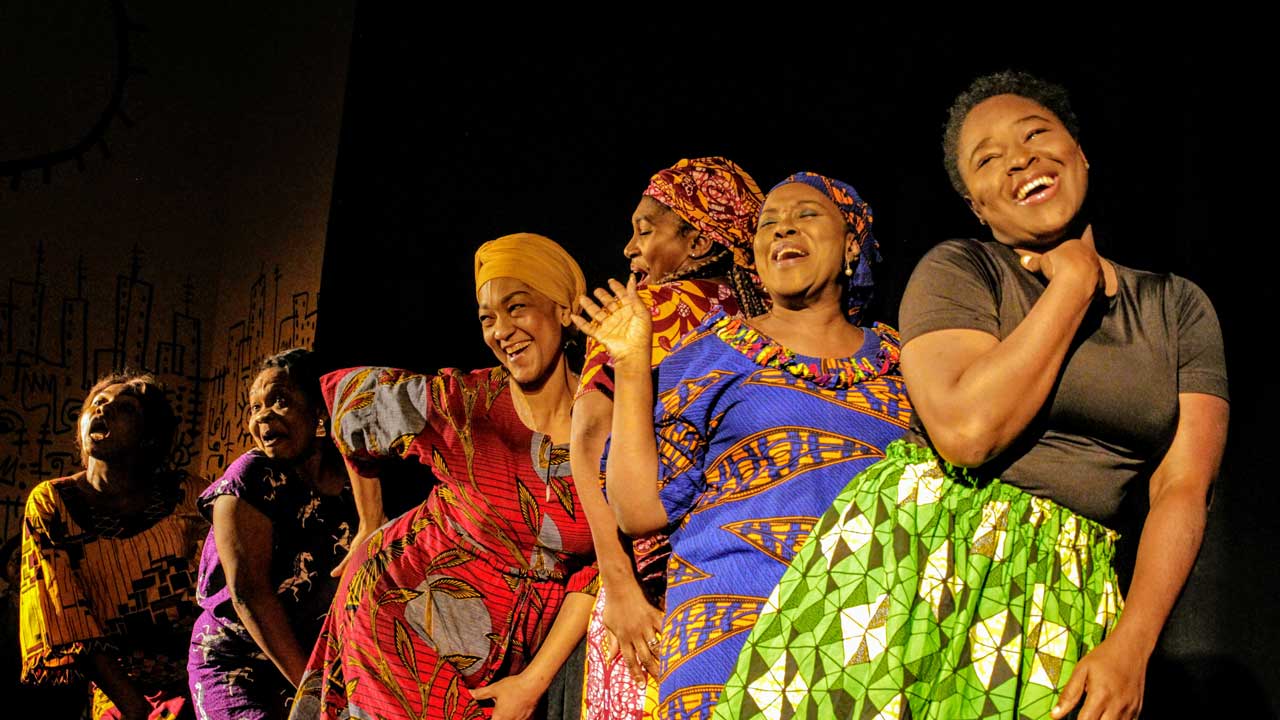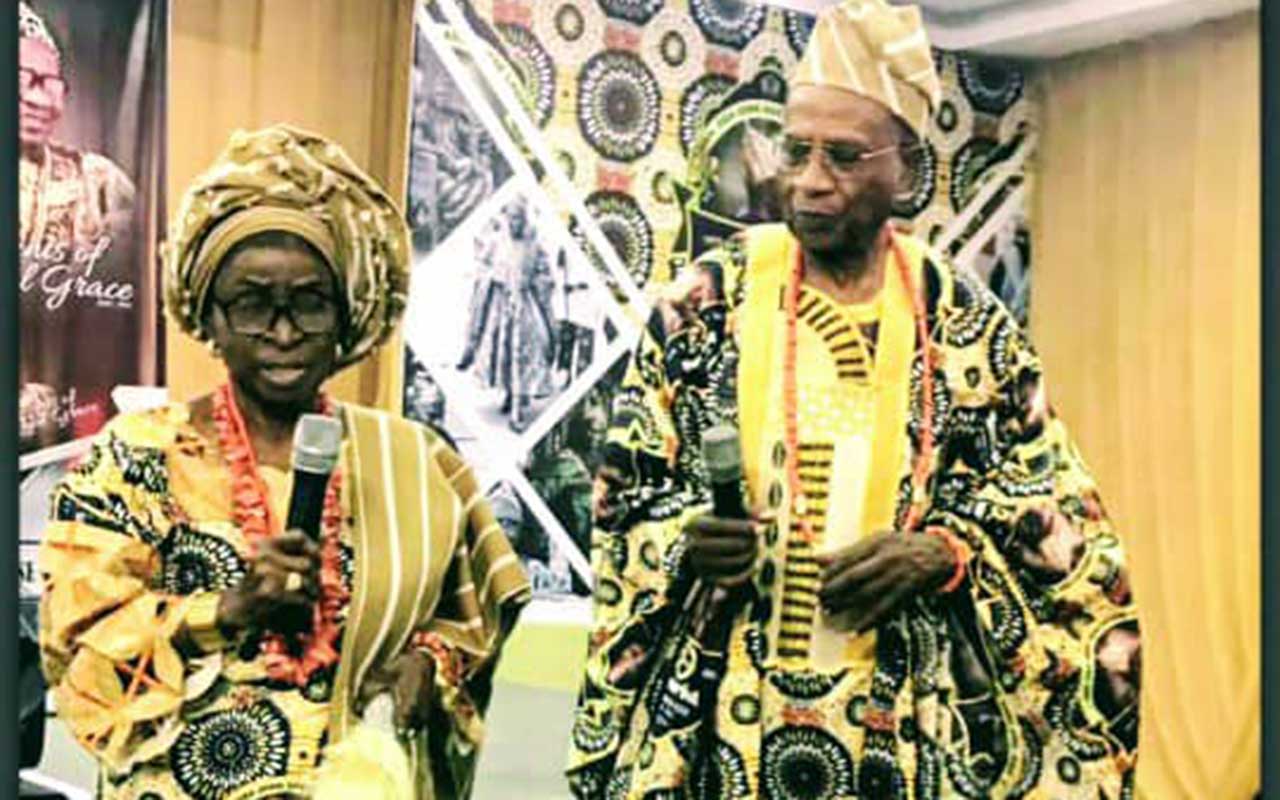
This, perhaps, may have suggested the reason some men see women as blunders and confused set of the human sapiens. Some even say they are set of creature that talk in opposite, saying no, while they actually meant yes.
The Afroplay House recently presented the Anatomy Of A Woman written by Wole Oguntokun and directed by Mustapha Alimiu at Calabar Kitchen, Ipaja.
The play centres on the big question — What does a woman want?
It opens with a protest when a man asks lady for sex after taking her to the movie. Action later moves to the room of Bolatito (Cecila Kimbe), a sassy working-class lady, besets by three suitors — Mohammed (Yemi Adetoye), Chief (Aina Johnson) and Austin (Festus Abayomi).
Each seeks her hand in marriage.
Bolatito, while growing up, loved Mohammed, a never-do-well, whose dream is to make it big in the music industry. Bolatito secures a better job and parts ways with him.
Ten years after, Mohammed is still nursing his bigger-than-life dream of making it big, traces his former love to her luxurious apartment in Lagos, and for old times’ sake, the lady accommodates him.
Chief, a rich businessman, cherishes Bolatito. He idolises her intelligence and beauty, and is ready to do anything for her hand in marriage. He rents and tastily furnishes a flat for her in a choice area of the city, aside from showering her with expensive gifts, including a state-of-the-art car. Chief is also generous with his money.
Bolatito also has Austin, an egghead, who though rich, believes in being the best in ones career. He works for a blue chip company and by virtue of hard work has risen to be the head of his organisation.
To keep the three lovers, Bolatito is always in her wits end; she tells chief, who on several occasions has seen Mohammed in the house, that his artiste boyfriend is her maternal cousin and a neurotic person. She tells Austin that Chief is her boss in the office and has come to her house for official matters.
Game changes when Aunty Jebe (Yewande Oluti) visits Bolatito. Worried that her niece is getting no younger, yet single, she begins to talk to her into getting married and settling down, since she is rich and beautiful.
But the sybarite has no such plans; she wants to milk the three men to her satisfaction, believing that each man stands for a different purpose. She wants to lead an independent life and enjoy her freedom.
Seeing Mohammed as a leech and a misfit for her niece, Aunty Jebe plans to stop him from coming to Bolatito. She is even ready to engage him in a fight, so far that will severe their relationship. She, however, ignores Mohammed and focuses on Chief, who gives her huge sums of money each time he comes around for her to influence Bolatito to marry him.
With the emergence of Austin, Aunty Jebe changes her opinion of Chief. She prefers the corporate man, who is heading a multinational company.
Examining closely who to settle down with, Bolatito in a flash sees Mohammed not being too sure of marriage and still lives in a dreamland.
For Chief, she sees herself being turned to a full housewife, with the responsibilities of producing babies and keeping the house. While with Austin, she sees a bright beginning that will climax with Austin asking her to resign from work to keep the home, especially as he has been transferred out of his station.
Imagining all these, Bolatito says no to marriage, as she wants to live her life the way she wants it. Not knowing exactly what is in the wrong, the three lovers ask, “what does a woman want?” This question envelopes the theme of the play.
With this theme, Oguntokun brings to the front burner issues of young African ladies that have chosen to remain single, even when they have everything going for them.
It highlights the importance of marriage in the African society while showing that the idea of wanting to be independent or single is foreign and seriously frowned at. It also shows how every member of the family gets worried whenever anyone chooses to be single.
Not supporting double-dealing, the play points out that a woman has the right to choose who she wants to marry and if she wants to marry or if she just wants to work to earn a living and as well enjoy the good things of life. In no little way, it rebuffs the idea that every man-woman relationship has sexual undertone, as both are free to relate.
Situated in the trajectory of a tripod, the play depicts how seeking for the ideal man or situation could lead to nothingness.
Setting the traditional against the modern, Oguntokun reveals that societies around the world are changing and that the period where a woman, for the sake of keeping to the existing social norms, goes into a marriage she will end up regretting for the rest of her life are gone, and that she, as main partaker, should be allowed to decide who to marry. If there is none that suits her, she is then at liberty to lead a single lifestyle and be happy.
Anatomy of a woman… Deepening voice for modern woman

A scene from the play
A scene from the play





